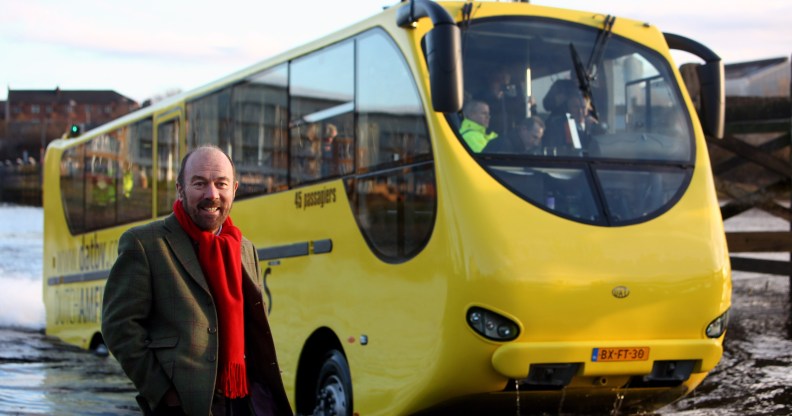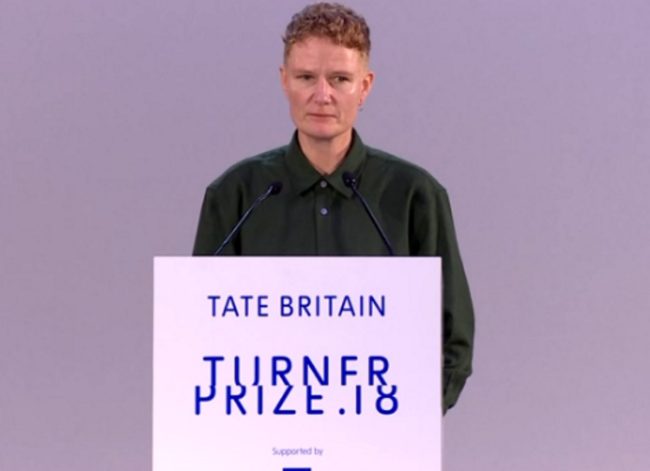Turner Prize criticised for anti-gay rights sponsor Sir Brian Souter

Stagecoach co-founder Brian Souter has a record of anti-gay positions. (Jeff J Mitchell/Getty)
The Turner Prize 2019 attracted criticism for accepting sponsorship from a company whose co-founder has a history of anti-LGBT activism.
Bus company Stagecoach will be the lead sponsor of the prize, The Guardian first reported on May 1.
The company is chaired by businessman Sir Brian Souter, who has previously warned society may ‘implode’ if traditional marriage fails and donated millions to keep Section 28 in Scottish law.
The announcement was made as Tate Britain revealed the shortlist for the 2019 prize, which will be unveiled by Turner Contemporary in Margate.
Many took to social media to criticise the announcement, including Observer art critic Laura Cumming, who said: “The art world swills with money. Sponsorship isn’t scarce: banks, brokers, big Pharma, and oil. But here we are with Stagecoach’s Brian Souter and his hateful homophobia.”
Sir Brian Souter’s previously anti-gay comments
The decision to pick Stagecoach South East—one of 18 locally managed companies within the Stagecoach Group—as the lead sponsor has sparked criticism because of Souter’s anti-gay record.
In 2000, Souter donated £1 million and was a prominent leader of the Keep the Clause campaign in support of the anti-gay section 28 in Scottish law.
His remarks in support of “traditional marriage” date from 2011, the same year he was knighted.
The Stagecoach boss said at the time: “We are arguing here about what kind of society we want to live in. Are we going to be in a Babylonian-Greek-type of society, where sex is primarily a recreational activity, or are we going to stick with the Judeo-Christian tradition, where procreation is something that we want to put within a marriage context?
“Quite honestly the issue about gay relationships is a small side-product from that discussion.”
In a 2014 interview, he claimed his position on marriage is not homophobic.
The revelation of the sponsor caused controversy in a press conference, according to the Guardian, who reported that journalists asked judges and the bosses of Tate Britain and Turner Contemporary whether Stagecoach was an appropriate sponsor.
Victoria Pomery, the director of Turner Contemporary, was quoted as defending the decision: “We are not in a major conurbation and we are constantly trying to bring new partnerships in to play so we thought Stagecoach could achieve that.”
Previous Turner Prize winner Charlotte Prodger is queer
The anti-gay sponsorship of the 2019 award stands in contrast to last year’s winner Charlotte Prodger, who is a queer woman.
Her 2016 film Bridget, which was shot on an iPhone, weaved together a poetic narrative of personal stories including her memories of coming out as gay.

Charlotte Prodger won the prize for films including Bridgit, which deals with queer issues (BBC News)
Prodger, who is Scottish and from Glasgow, often portrays the experiences of queer women in her work.
PinkNews contacted Prodger, but a representative for the artist said she was not available for comment.
Stonewall told PinkNews it could not yet comment directly on the Turner Prize sponsorship, but a spokesperson said: “Brian Souter’s previous comments about LGBT people are just one example of how much work is still left to do to combat discrimination.
“Faith is often used to justify anti-LGBT views and attitudes. This is wrong and perpetuates a myth that faith and LGBT inclusion cannot coexist. Our work continues to end the use of hateful language against lesbian, gay, bi and trans people.”
In a statement quoted in The Guardian, Stagecoach said it did not tolerate discrimination or harassment of any kind. “Our Stagecoach culture values transparency, diversity, and respect. We expect our employees to commit to doing the right thing, to respect other individuals at all times and treat them with dignity, and thoughtfulness, and we are committed to providing equal opportunities for all.”
The Turner Prize shortlist was overshadowed by the controversy. It features artists Lawrence Abu Hamdan, Helen Cammock, Oscar Murillo and Tai Shani.

